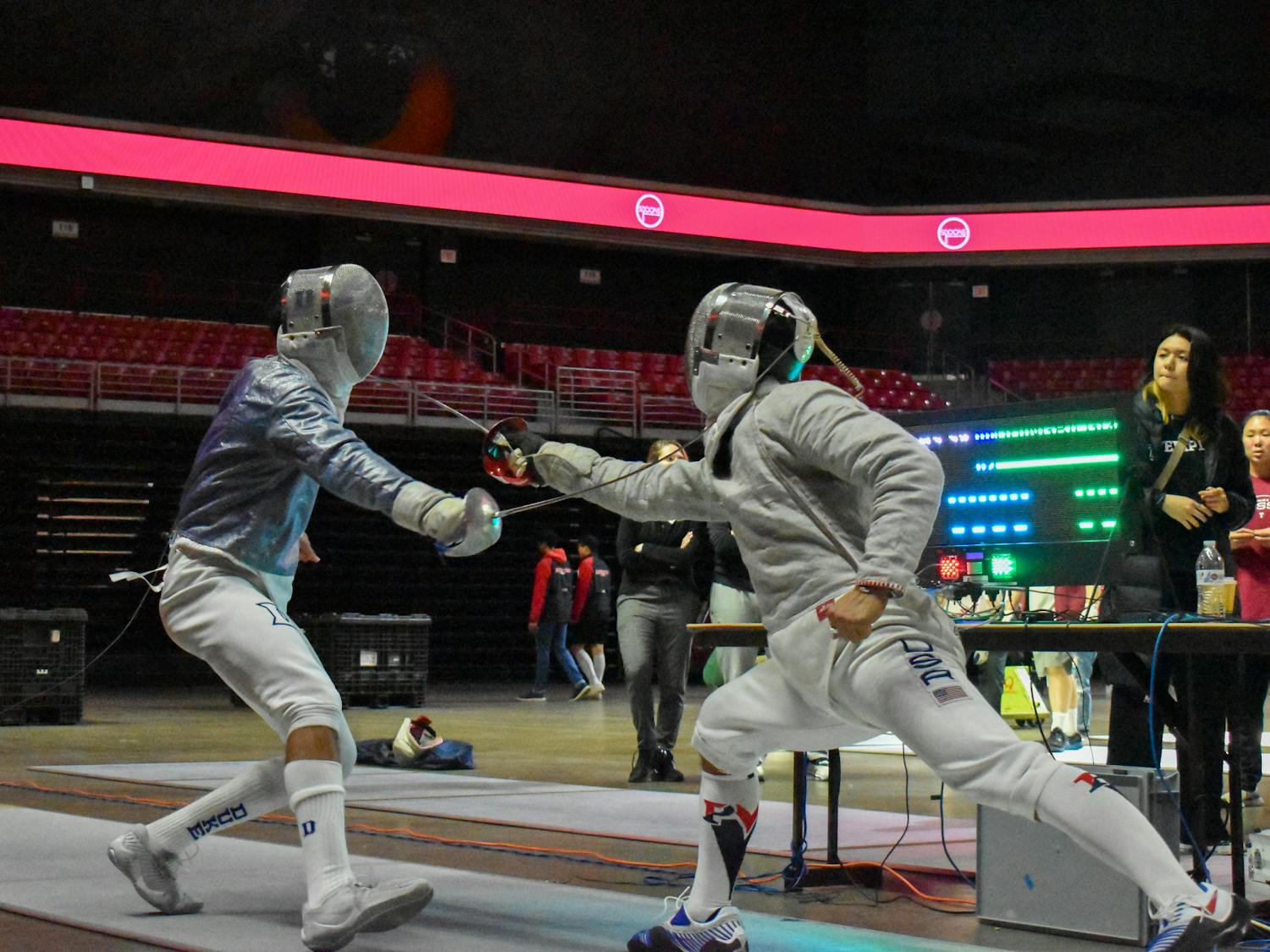A home course away from home.
When thinking of home fields at Penn, Franklin Field and the Palestra are the first that come to mind. There are also, of course, the Hecht & Hamlin Tennis Centers, Rhodes Field, and Meiklejohn Stadium, in addition to the numerous other facilities on campus. For most athletes, their home field is on campus. They head to their facilities following class and leave after practice, never stepping foot off University property.
However, in contrast to this convenience that many athletes enjoy, Penn golf's repertoire is much different. Practicing at Bala Golf Club, the women’s team travels an approximate half hour every time they have an outdoor practice. For most of the golf season, the Red and Blue practice five times a week at the course. Although the drive might seem like an inconvenience, coach Mark Anderson believes that it's a positive.
“In the van, the girls have time to relax," he said. “It’s nice to have a break before practice so you aren't going right from class to practice. They get a little time to wind down.”
In addition to outdoor practice, Penn is a leader in the amount of indoor golfing amenities it employs. The use of two TrackMan Golf Simulators and a large indoor putting green have given the Quakers a great way to stay in form during the winter. The TrackMan machines have the capabilities to help golfers work on different shot lengths and learn how to control spin.
“[The simulators] definitely change the sport," freshman Mary Shin said. “The thing that's interesting about the simulators is that it shows you the club path, the angle of the club face, and many more statistics of your swing. You can actually see a video of your swing, too. Practicing indoors is much more technical than playing the course outdoors.”
Although these simulators offer a multitude of specific data, there are some things that require outdoor practice to truly improve.
“When you are out playing, you are learning how to hit different shots and how to play out of different grass, which is probably the most important thing," junior Christina Park said. “But sometimes, you need to work on your mechanics. The TrackMan simulator really helped to improve my swing and my mechanics overall. I became a better ball striker just knowing how to hit my ball and work around it."
RELATED:
Penn women's golf records impressive tie for second at Harvard Invitational
Penn women's golf shines and finishes third in William & Mary Intercollegiate
Although Penn has fantastic practice facilities for its players, one issue that arises is the notion of home-field advantage in sports. Although the audience does not have as large of an effect on golf as it does on other sports, familiarity with one’s home course is still an important factor.
The only Ivy League teams who have home tournaments are Princeton and Yale. One obvious question is whether or not these teams have a significant advantage when playing at home.
“I think there is always a little bit of an advantage knowing a golf course that you play all the time and have a tournament there," Anderson said. "But some of our team members now have played eight or 12 times, including the practice and the three tournament rounds. You definitely get to know the course after a few times, but it’s always nice to have home-field advantage, a tournament at your own course."
Although the distinct lack of a home-course advantage could be caused by a multitude of reasons, including the lack of a crowd seen in sports like basketball or football, the ever-changing characteristics of golf courses and the numerous possible conditions can also eliminate any clear advantage.
“With golf, it's different every time you play outside," Shin said. "Familiarity with the course is good, but it’s not essential to succeed."
As the Quakers edge towards the end of the season, they are looking towards the Ivy League Championships at The Ridge at Back Brook in New Jersey, hoping to rebound from a seventh-place finish in last year’s competition.









